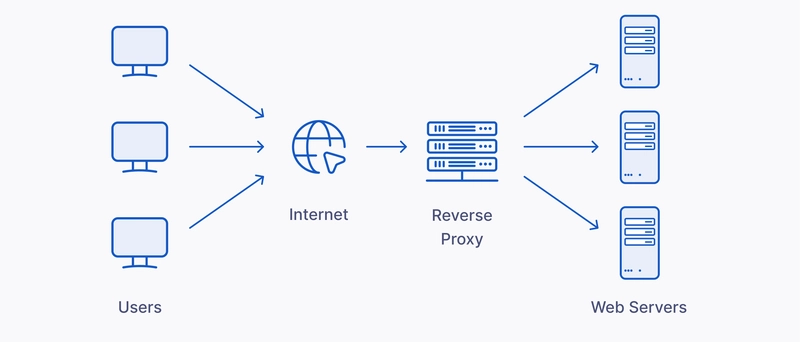Stable Connections Using Distributed Proxy Architecture
Stable connections are an essential component to access the internet. You may want to conduct detailed marketing research for your business, access geo-restricted content on Netflix, or even plan an online game without being banned. To keep your digital footprints, secure and avoid interruptions, you may need a proxy server.
How Residential Proxies Help with Connections
Proxy servers essentially act as an intermediary between you, the user requesting a resource online, and the server that provides the resource that you need. By masking your real IP address, they help you access the web securely and anonymously. You can bypass geo-blocking and browse privately without the worry of prying eyes.
Depending on your access needs, there are different types of proxies to choose from. For instance, forward proxies act as intermediaries between the user and the internet while reverse proxies between clients and web servers. There are also rotational proxies that rotate IP addresses frequently, making them difficult to track. However, for stable and more secure connections with minimal risk of detection, you may want to buy residential proxy.
Unlike other types of proxies, a residential proxy masks your online device with an IP address assigned by an Internet Service Provider (ISP). When your traffic is routed through this proxy, your device receives an alternative ISP-backed IP address from a device connected to a home network. This hides your real identity behind a genuine residential IP that is difficult to detect by anti-bot solutions. To ensure even more stability, a distributed proxy architecture is often used by residential proxy providers.
How Does a Distributed Proxy Architecture Work?
A distributed proxy architecture uses multiple proxy servers across a network to achieve to ensure reliability, resilience, and performance in internet access. It distributes a load of web traffic to several servers, which helps to reduce the risk of single failure points. This approach also allows the architecture to handle high volumes of traffic in a more effective manner, ensuring stability in connections even during network fluctuations and server outages.
In a distributed proxy architecture, a central load balancer distributes all incoming requests to different proxy servers within the network. As such, no single server is overloaded at any one time. Each server will handle the assigned tasks, which may include request filtering, security enforcement, or content caching.
The load balancer ensures that the whole network is performing optimally at all times. If a proxy server fails, it automatically routes that server’s request to other available servers on the network, ensuring service continuity is maintained. Other important components of this architecture include frequent cache of access content by the proxy servers and continuous filtering of suspicious traffic.
What are the Benefits of Distributed Proxy Architecture?
The primary functioning of a distributed proxy architecture is ensuring that all traffic load is not handled by a single proxy server. Instead, the load is distributed to multiple servers, ensuring that each server is performing at optimal levels. This offers several key benefits to users:
- Improved Reliability: At the center of distributed proxy architecture are multiple proxy servers. This means if one fails at any point, others can automatically take over, which prevents loss of connection while maintaining service availability.
- Enhanced Scalability: As a business grows, so does its traffic load. With the distributed architecture, new proxy servers are added to the network to handle the increasing demand and prevent any degradation in performance.
- Increase Performance: One of the major challenges individuals and businesses face when using proxies is reduced performance. Distributed architecture resolves this problem by load balancing across proxies. This leads to optimal resource utilization, reducing latency and improving response times.
- Enhanced Security: By their very nature, proxy servers act as firewalls that filter malicious traffic and potential threats.
- Caching: Proxy servers frequently cache access content, which helps to reduce bandwidth usage while improving access speed for users.
- Privacy: By routing traffic through proxies, your real IP address is masked, and privacy is provided when accessing the internet.
Key Takeaways
When accessing the internet, security and stability are among the most important considerations to make. While most proxy server providers provide security of your data and anonymity of your identity, choosing a proxy with stable connections is equally important. The distributed proxy architecture is by far the most effective mechanism used to ensure proxies can provide stable continuous connections. By using multiple proxy servers on the network, this architecture ensures that you are always online even when one proxy server fails.







